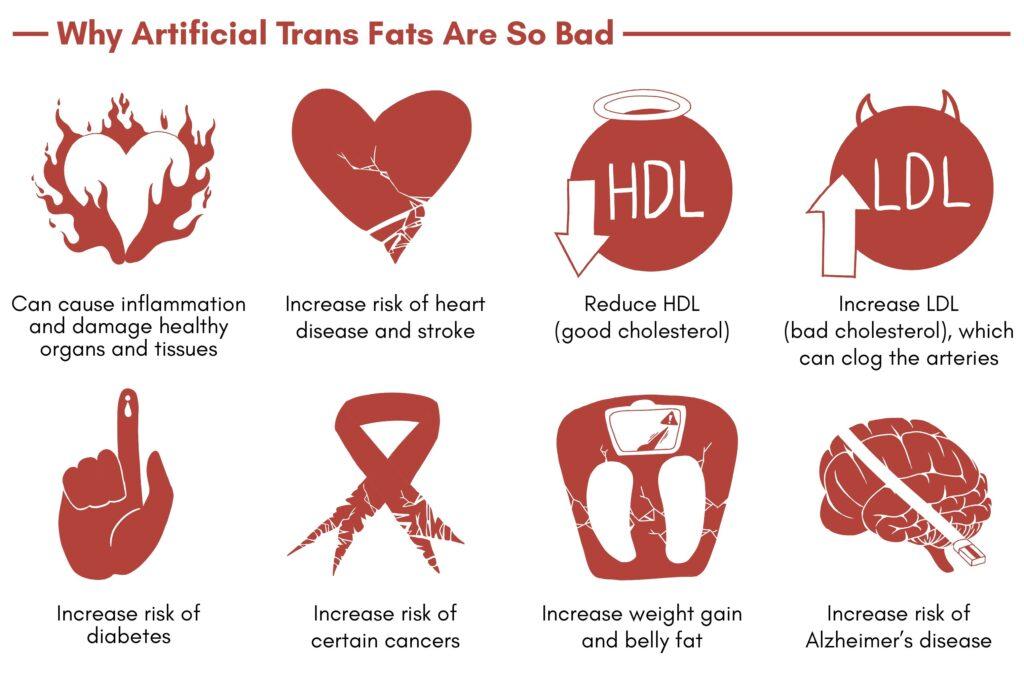
Trans fat regulation, which seeks to regulate the amount of trans fat in commercial food products, was enacted in several countries over the last few years
These regulatory acts were prompted by several studies that pointed out serious negative effects of trans fat on human health. These include heart disease, stroke, breast cancer and other chronic diseases. This article examines some of the key facts surrounding trans fat regulation.
The term "trans fat" refers to any food that contains partially hydrogenated oils, a category of vegetable fat which contains about 70% of saturated fats. In this case, the fats have had hydrogen added to them, thus transforming them into a solid form. While some of these oils are truly "trans fats", the majority of them are not. Therefore, it is safe to say that there is no true trans fat in any product sold today.
Some argue that the term "trans fats" is not accurate because they cannot be separated from the oils by any means. The trans fat industry, however, disputes this, claiming that this is only a tactic designed to scare consumers into purchasing more products. Many scientific studies show that consuming trans fat does not harm health. However, there are those who disagree. These people argue that there is still a significant amount of the fat in their foods that should not be there.
One of the most popular arguments against trans fats is that eating less of it can help reduce the risk of developing heart disease. Some research supports this claim; others dispute it. It is also possible to lose weight by eating less of this type of food. The best thing that anyone can do, however, is to avoid it completely.
In order for trans fat regulations to work, they have to go beyond simply regulating the amount itself. A trans fat regulation is based on the notion that a certain amount of saturated fats should be included in every product sold in order to provide good health to consumers. A trans fat regulation will not, however, require that every product contain all trans fats, nor will it require that there be any trans fats in them at all. Some regulations do mandate that saturated fats should make up only a small percentage of the content in a food, but they allow that trans fats may be used.

Some proponents of trans fats believe that since the FDA regulates saturated fats, there is no need for it to regulate trans fats. This is, of course, a faulty assumption. Because there are so many factors that determine the level of saturated fat in a food, trans fats should be regulated. However, trans fats should still be regulated.
One of these factors is the actual fat content. Foods that contain saturated fats tend to be more expensive than those that do not contain saturated fats; therefore, they will be more likely to use trans fats to achieve their goal. Also, it is not very affordable for most people to buy less of them.
Other proponents of trans fats do not believe that the FDA has the power to regulate foods
They also question whether there is any real proof that trans fats cause negative effects. While the debate rages on, we will have to wait for further studies to come up with solid answers about the matter. Until then, you should still purchase foods with as little or no trans fat as possible.
One type of food that has less than 0.5 grams of trans fat per serving is whole grain bread. This means that you should not substitute regular whole wheat bread for one that contains any trans fat. This applies to anything made from whole grains like oatmeal, barley, and brown rice. You can, however, choose to substitute regular white bread with these kinds of bread.
Some of the best choices for trans fats include peanut butter, some types of fish, beef, chicken, turkey, fish, cheese, and yogurt. If you're trying to stay away from trans fats, you should avoid foods that contain hydrogenated oils. i. These include but are not limited to, vegetable oil, margarine, hydrogenated soybean oil, hydrogenated corn oil, palm oil, peanut oil, and canola oil. If you're looking to eat more of these types of fats, you should look to lower fat spreads and butter substitutes. The good news is that these spreads can easily replace your trans fats.
So, the trans fat regulation can be both complex and complicated. Some people think it is a good idea to take a risk and buy trans fats, while others think that it's an evil that should be avoided. Regardless of what you believe, there is still no good reason to consume it.